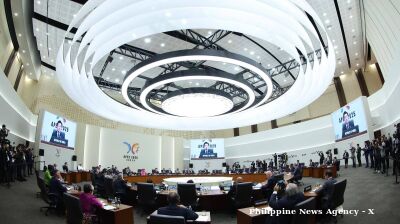Romania’s government will exit the deal with its Chinese partner China General Nuclear Power Corporation (CGN) on the construction of reactors 3 and 4 at the Cernavoda nuclear power plant, Prime Minister Ludovic Orban announced in an interview with Hotnews.ro.
He invoked the European Union’s Green Deal rather than security issues or cost concerns circulated previously as the main reason behind a potential end of the deal with CGN to expand Romania's only nuclear power plant.
Nuclear energy is excluded from the Just Transition Mechanism, a key financial component of the European Green Deal that should make the bloc climate neutral by 2050.
“It is clear to me that the partnership with the Chinese company is not going to work,” Orban said, adding that the government has already started to look for a new partner and financing for the project.
He explained that all the new projects in Romania’s energy sector will depend from now on on the European Union’s Green Deal, an initiative aimed at reducing CO2 emissions in the EU.
In 2015, Romanian state-owned electricity producer Nuclearelectrica, the company that operates the Cernavoda nuclear power plant, signed a memorandum of understanding with CGN on the construction of two new reactors, 3 and 4.
On May 8 last year, the two sides officially signed the preliminary agreement on the construction and operation of two new reactors. However, the cooperation between Nuclearelectrica and CGN became uncertain after Romania’s President Klaus Iohannis and US President Donald Trump signed a joint declaration on August 21 in Washington that mentioned a closer cooperation between the US and Romania in the field of nuclear energy. In September, former PM Viorica Dancila also signed a memorandum in this regard with US Energy Secretary Rick Perry.
Moreover, CGN was accused of nuclear espionage by the US government back in 2016.
News

Chicken and chips in Seoul - for Nvidia, Samsung and Hyundai
In a low-key fried chicken shop in southern Seoul, the leaders of Nvidia, Samsung Electronics and Hyundai Motor held an informal meeting on the evening of October 30.

Presidents Lee and Xi begin diplomatic chapter at APEC summit
President Lee, who is chairing the first session of the summit at the Hwabaek International Convention Centre, stood at the entrance to personally welcome participants. President Xi reached the venue at approximately 10:02.

South Korea opens APEC summit focusing on connectivity and growth
South Korean President Lee Jae Myung chaired the opening session of the Asia Pacific Economic Cooperation (APEC) Leaders’ Meeting on the morning of October 31 in Gyeongju, North Gyeongsang Province.

Serbia’s NIS posts 9-month net loss as US sanctions weigh on performance
NIS, majority-owned by Russia’s Gazprom Group, said it had operated in “extremely complex circumstances” after sanctions were announced by the US Treasury Department.




